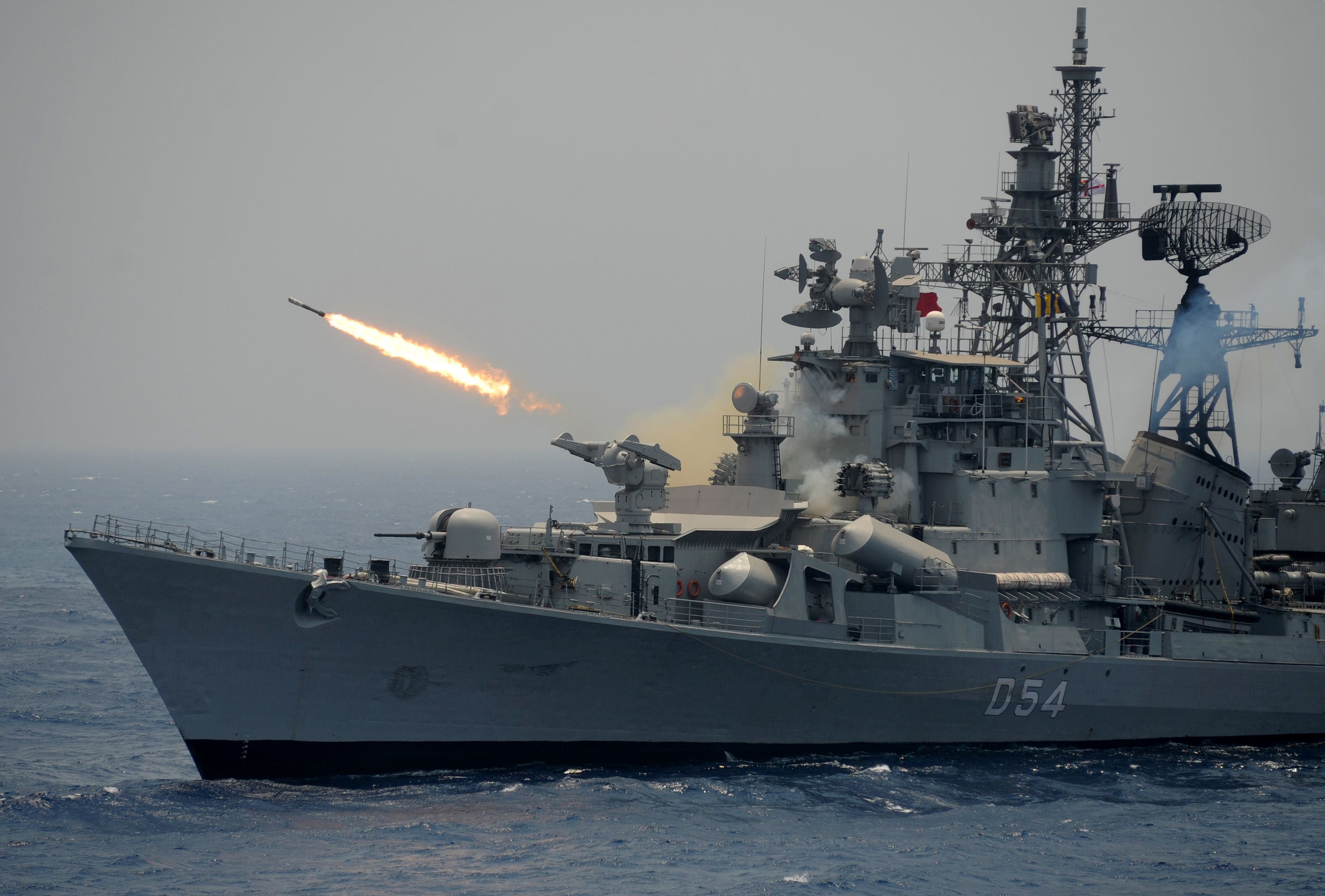Australia to join naval military drills with US, Japan and India in major challenge to China
First full joint exercises of ‘Quad’ nations in more than 10 years come deteriorating relations between members and Beijing

Amid its ongoing military standoff with China in Ladakh, India has announced that Australia will join it, the US and Japan in naval exercises for the first time in 13 years.
The last time the annual Malabar naval drills included all four of the Asia-Pacific “Quad” nations was in 2007, after which Australia stopped attending due to strong protests from Beijing.
The drills, first founded by India and the US in 1992, were held off Japan in 2019 and off the US territory of Guam in 2018. This year’s exercises are expected to be held in the Bay of Bengal and the Arabian Sea.
A statement by the Indian government said the Australian navy’s participation comes as it seeks to increase cooperation with other countries over maritime security. It also comes in the light of broader strengthening of defence cooperation within the Quad.
A source told The Independent that the decision to invite Australia to Malabar had been in the works since the start of 2020, and was a “political decision” taken by the government of India in light of the situation with China. According to reports, it was India who rejected an Australian request to join the exercises in 2017 – a move that was welcomed by Beijing at the time.
Monday’s announcement comes less than two weeks after the foreign ministers of the four Quad nations met in Tokyo, during which the issue of a free and open Asia-Pacific region – and implicitly, the threat to that from China – was discussed.
The Indian statement said that the participants in Malabar “collectively support a free, open and inclusive Indo-Pacific and remain committed to a rules-based international order”.
Australia’s defence minister Linda Reynolds called the exercises a “milestone opportunity for the Australian defence force”.
“High-end military exercises like Malabar are key to enhancing Australia's maritime capabilities, building interoperability with our close partners, and demonstrating our collective resolve to support an open and prosperous Indo-Pacific,” Ms Reynolds in a statement. Australian media described the statement as “a broadside at China in all but name”.
Ms Reynolds emphasised that the decision showcases the deep trust between four major democracies and their shared will to work together on “common security interests.”
China and Australia have increasingly been at loggerheads over the former’s claims in the South China Sea, while also disagreeing over the latter’s characterisation of the coronavirus pandemic. In a submission to the UN in July 2020, Australia rejected China’s claims in the South China Sea region – a stance which brings it closer to the US’s own.
While naval exercises have not taken place involving the full Quad recently, sources said India and Australia have maintained close ties and interoperability through other multilateral drills. These include the Kakadu exercise in 2018 and the Ausindex in 2019.
In 2019, the Australian navy took part in an exercise, involving a submarine, with the Indian navy in the Bay of Bengal. “Over the past few years, the level of cooperation between the two navies has been very good,” a source said.
Subscribe to Independent Premium to bookmark this article
Want to bookmark your favourite articles and stories to read or reference later? Start your Independent Premium subscription today.

Join our commenting forum
Join thought-provoking conversations, follow other Independent readers and see their replies